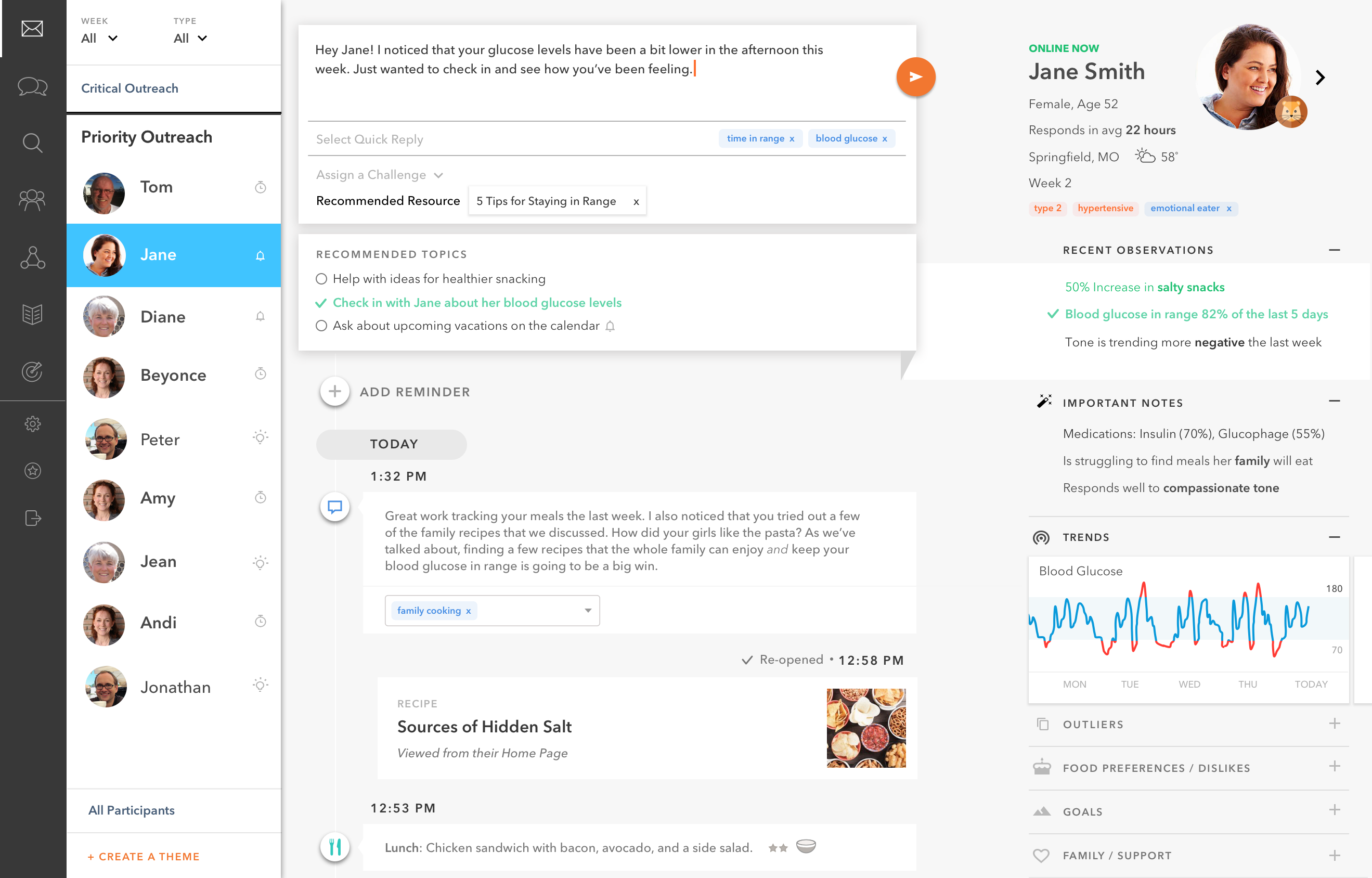
Omada Health released preliminary data demonstrating the effectiveness of its digital diabetes prevention program. Photo credit: Omada Health
Omada released preliminary data Tuesday demonstrating its digital diabetes prevention program was as effective as in-person classes. This research, CEO Sean Duffy said, is an important milestone as digital health companies seek further recognition and coverage as a benefit.
“Part of our belief is that in order to share with the world that digital health can matter, you have to publish,” he said. “The neat thing about this trial, in addition to meeting its endpoints, the methodology behind it and the way it’s designed should be able to show the power of our program to even the most conservative medical director.”

With the Rise of AI, What IP Disputes in Healthcare Are Likely to Emerge?
Munck Wilson Mandala Partner Greg Howison shared his perspective on some of the legal ramifications around AI, IP, connected devices and the data they generate, in response to emailed questions.
The results were from the largest randomized controlled trial of a digital diabetes prevention program (DPP) that Omada has conducted to date.
Though there is plenty of observational data on the effectiveness of digital programs for diabetes prevention, few randomized clinical trials have been conducted. They tend to be small, and focus on weight loss as the primary endpoint, said Dr. Cynthia Castro Sweet, Omada’s senior director of clinical research.
“Our trial was a longer-term engagement,” she said. “We were looking at 12-month outcomes. We were looking at weight and A1C.”
Omada presented the results at a virtual conference hosted by the Obesity Society. It has not yet published its findings.
Study design
The study enrolled 599 people with prediabetes into either Omada’s digital diabetes prevention program (DPP) or a diabetes prevention class.
Users in Omada’s program had access to health coaches, peer groups, educational information and tools to sync data from wearables and scales.
After a year, participants who used Omada’s program reduced their Hemoglobin A1c levels by an average of 0.23%, significantly more than the control group average of 0.15%. Omada participants also achieved an average weight loss of 5.4%, compared to an average of 2% from the control group.
In total, 58% of Omada participants were able to bring their HbA1c levels to the normal range within one year, compared to 48% of the control group.
A team of researchers at the University of Nebraska Medical Center collected the data, while scientists at Wake Forest University conducted evaluation and analysis.
Jeffrey Katula, the study’s co-principal investigator and an associate professor of health and exercise science at Wake Forest University, said he was satisfied to see the change in hemoglobin A1C levels.
“Getting movement in A1C is challenging. … It’s a really important outcome,” he said. “Importantly, the effects we achieved were greater at 12 months than they were at four months. Typically, see good effects early on. And then people tend to gain that weight over time.”
Notably, a significant portion of the participants were older than 65 — roughly 26%. They actually had better results than younger participants, seeing an average HbA1c reduction of .28% with Omada’s platform, compared to .14% with the control group. They also saw an average weight loss of 6.1%, compared to 2.1% in the control group.
Dr. Ethan Weiss, a cardiologist at UCSF Health who was not involved in the study, commended Omada for doing a yearlong randomized clinical trial. He is also a cofounder of digital weight loss company Keyto and a former advisor for Virta Health.
“That’s more than average for this kind of study. We can speak somewhat to the durability,” he said in a phone interview.
At nearly 600 people, he added that the trial was larger than most, though the fact that it was a single-center study could be a concern. Another question was whether the platform was accessible to people of different backgrounds, including those without reliable home internet.
“The reality is we have a big problem on our hands and developing new strategies to tackle it is good,” he said. “I think there’s a tremendous amount of excitement and potential promise to be able to deliver these interventions (virtually), not in person. Especially now.”
Other studies
Sweet will lead a busy research agenda as Omada integrates more digital health programs into its platform. The company recently acquired Physera, a platform for virtual physical therapy visits, as well as a digital mental health platform.
“We have a lot of studies on our other products to do,” she said.
She also plans to look closer at how Omada’s digital diabetes prevention program would be implemented in a healthcare setting, and whether it affected how people engaged with providers or accessed care.
“I think it speaks to the power that digital health is maturing here. We’re extremely interested in care areas where it’s clear that a digital first approach makes sense,” Duffy added. “I think it’s still at the very beginning of what can be done here. I think it’s going to be an exciting next couple of years.”














